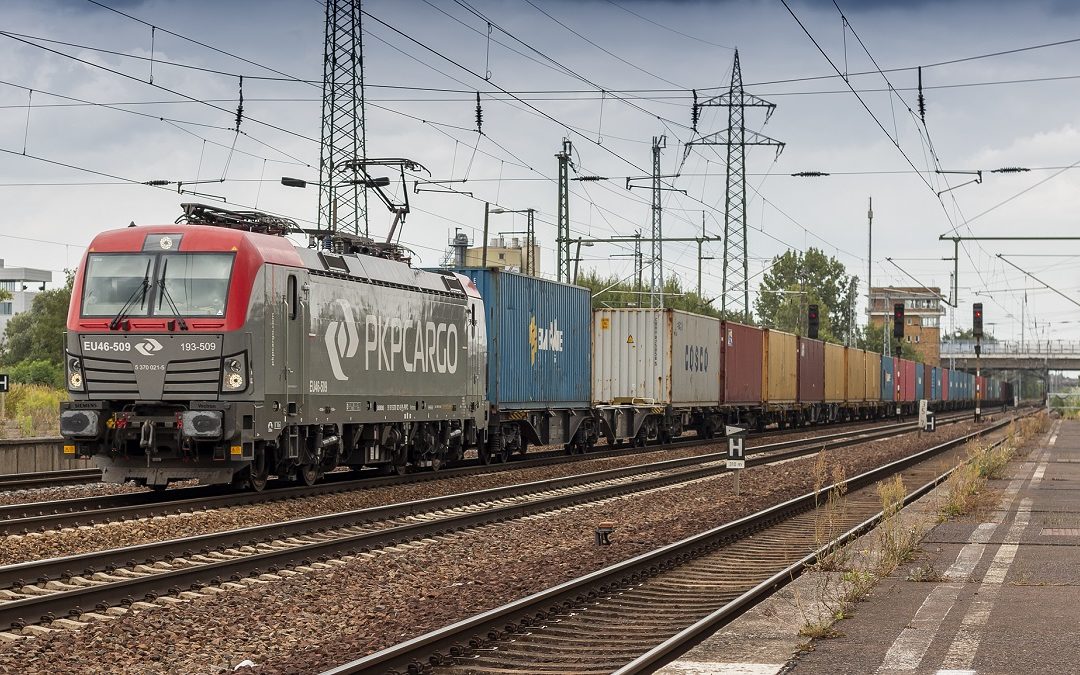A Polish state-owned logistics company has received the green light to begin transporting food by railway to China. PKP Cargo Connect, a subsidiary of one of the companies in the PKP Group, will be permitted to travel through Russia despite the Russian embargo on Polish food.
The CEO of PKP Cargo hailed the opening of the new export route as a boon to the entire Polish economy as it struggles to mitigate the effects of the coronavirus epidemic, reports financial website Money.pl.
Transports of food from across Poland will arrive at the land terminal of Małaszewicze in the country’s east – a European gateway on the so-called “New Silk Road” (NJS), part of China’s “Belt and Road Initiative” to develop infrastructure across Asia, Europe and Africa.
The goods will then be dispatched directly to the city of Xi’an, making use of the first regular cargo train connection between Poland and China, which was inaugurated last year. The journey takes around 14 days, reports Money.pl.
PKO Cargo claims to have solved the problem of the Russian embargo on food from the European Union, which has hitherto also applied to transit. The containers will be fitted with security seals equipped with GLONASS technology, the Russian equivalent of GPS, allowing the Russian authorities to supervise the trains during their passage within its borders.
The ban on the import of a number of products from EU and other countries that supported anti-Russian sanctions has been in place since summer 2014. It has previously prevented rail transport from Poland to China of dairy, meat, cereal and other food products, despite improved trade relations between the two countries.
“Transport of food by train from Poland to China through Belarus, Russia and Kazakhstan is the fastest and most efficient land route,” commented Czesław Warsewicz, the company CEO, quoted by Wprost. “Polish exporters will be able to supply food to the receptive Chinese market, where our food products are renowned for their high quality.”
Amid the excitement, the caveat for the initial phase of the project is that only products not sensitive to changes of temperature will be transported, as the required refrigerated containers are currently unavailable.
Prezes PKP CARGO zwraca uwagę, że otwarcie nowego kanału eksportowego jest ważne dla całej polskiej gospodarki ze względu na niwelowanie skutków epidemii koronawirusa. pic.twitter.com/ZSyhSP1y62
— PKP CARGO (@pkpcargo_media) April 21, 2020
The company stresses that the opportunity to transport goods by rail opens up an enormous market to Polish products which was previously available only by sea or by air. The former method is relatively cheap but slow, whereas the latter is fast but prohibitively expensive for food producers, reports Money.pl.
The new direct cargo train link between Xi’an and Poland, opened in November, was intended to reduce transport time by up to five days. At the time, minister for marine economy Grzegorz Witkowski said, “We want Poland to be the first [European] country to receive goods from the Far East, so that all the taxes and customs duties would be paid here.”
Previously, in July, China’s foreign minister, Wang Yi, visited Poland in an effort to reinvigorate cooperation and boost trade within the so-called 17+1 framework, a part of the Belt and Road Initiative dedicated to 17 countries in Central and Eastern Europe.
Poland’s planned new exports could go some way towards redressing the imbalance in trade flows between the two countries. According to Poland’s foreign ministry, in 2018 Polish exports accounted for just 2.5 billion of the 33 billion dollars flowing between the country and China.
Main image credit: Flickr/Nicky Boogaard (under CC BY-NC-ND 2.0)

Ben Koschalka is a translator, lecturer, and senior editor at Notes from Poland. Originally from Britain, he has lived in Kraków since 2005.




















